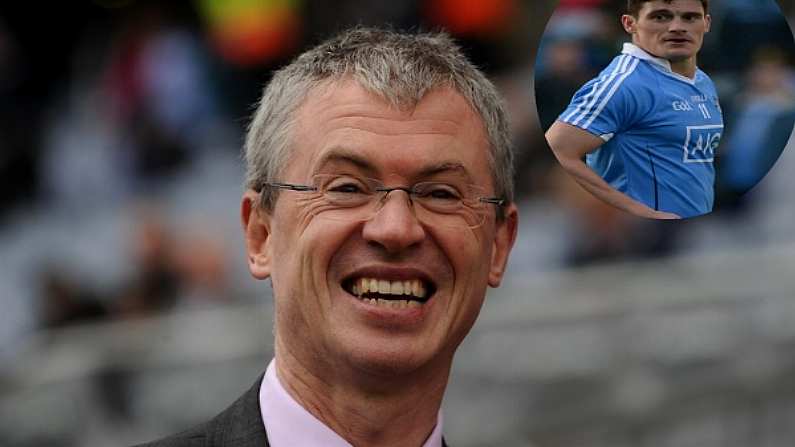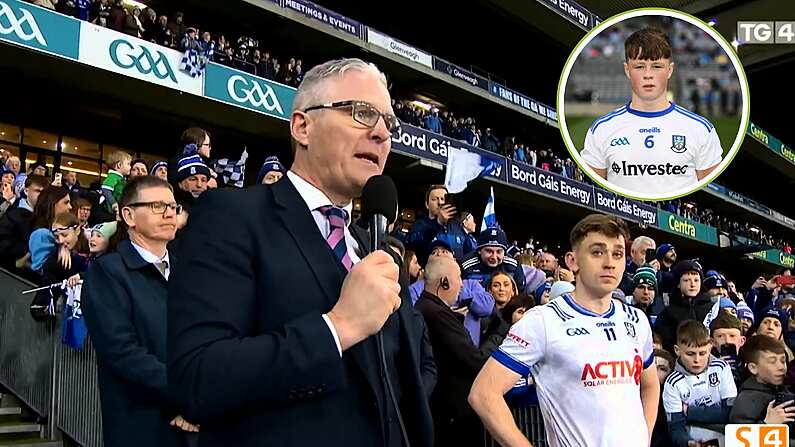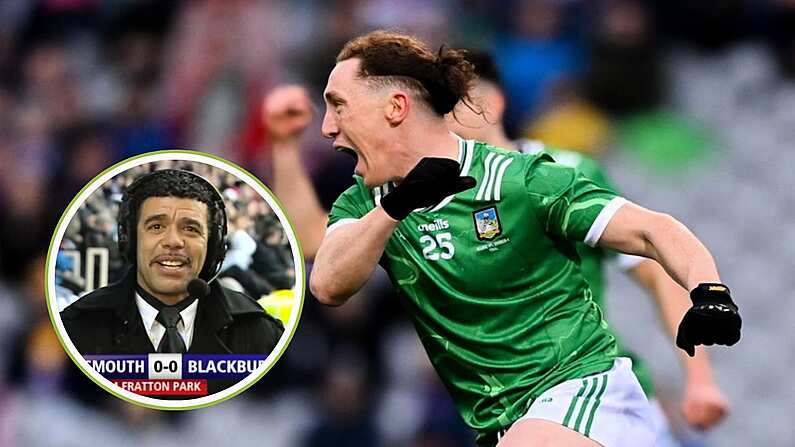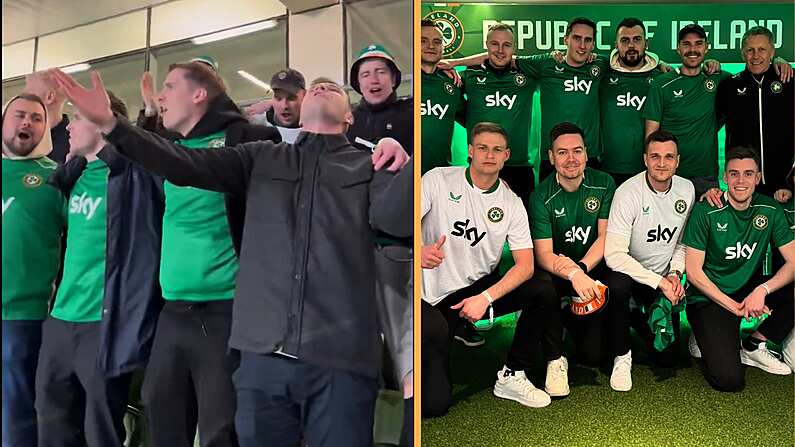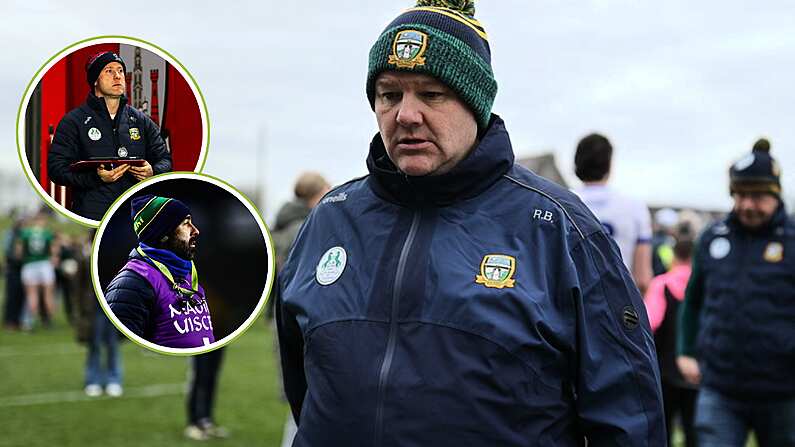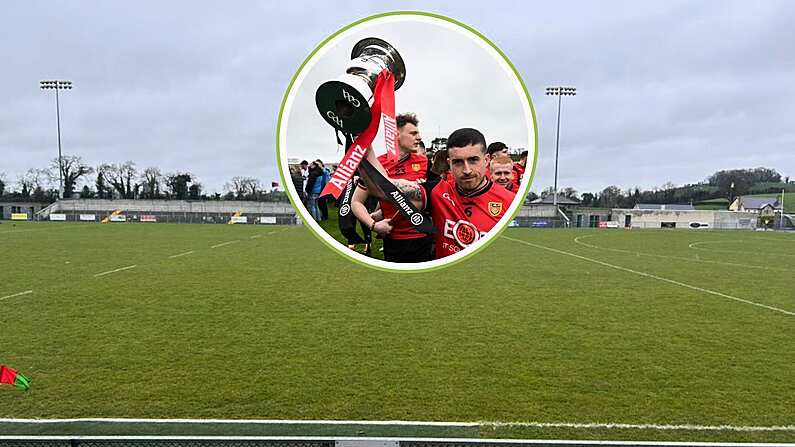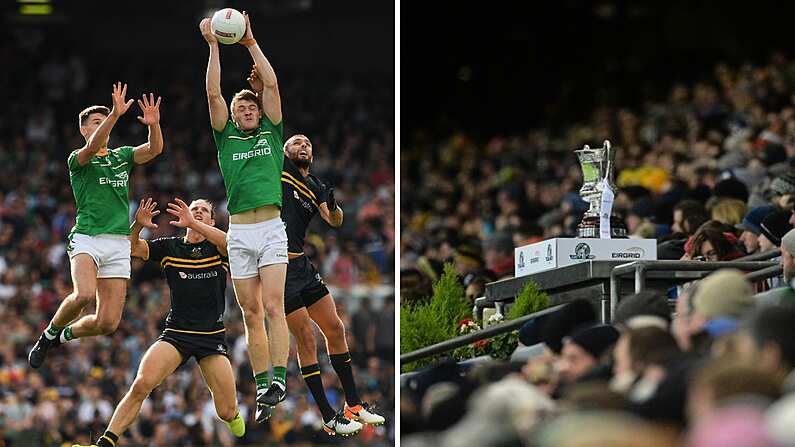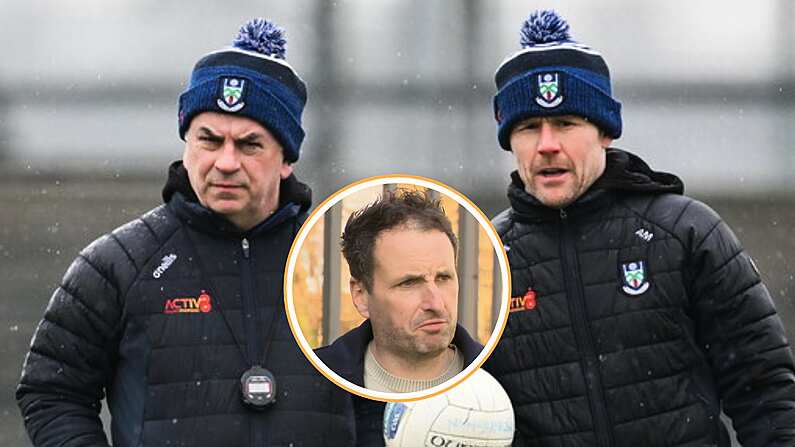Earlier today, the CCCC proposed that Diarmuid Connolly is given a 12-week ban after he was involved in an altercation with linesman Ciaran Branagan against Carlow.
The All-Star forward pushed the Down linesman after a line ball was ruled the way of Carlow. The official rule surrounding it is quite clear: it states that any minor physical interference with a match official is punishable with a minimum 12-week ban. The suspension will rule Connolly out until a possible All-Ireland semi-final, and he will rely on Dublin making it that far and needs that game to be the second semi-final played this year.
Joe Brolly, who deployed his considerable legal mind to help exonerate Matthew Fitzpatrick earlier this year, appeared on 2FM's Game On with Joe Stack and Bernard Flynn to discuss the issue.
Brolly says that there is one odd thing about the suspension, related to its inclusion in the referee's report of the game. While Joe Stack said on air numerous times that they cannot confirm whether it had been included in the referee's report, Brolly believes that it has been.
Had the incident not been included in the referee's report, Brolly said that it would have been "virtually impossible" that the CCCC could have suspended Connolly.
Here's what he had to say:
There is no case for laying a hand on an official. The offence itself is clearly defined, of minor physical interference. It even includes the laying of a hand on an official. So long as it is in the referee's report, he is guilty, and the 12-week ban automatically follows. The problem is that it is a 12-week ban at the heart of the championship, but there has to be zero tolerance for touching an official.
The very odd thing about this case, and something that is rescuing the CCCC from a fatal legal problem, is that if is this hadn't been referred to in the referee's report, the CCCC would not have been able to act as the official had been fully aware of it at the time.
The only assumption which arises is that he didn't think that Diarmuid crossed the line and didn't warrant a punishment, and a card, because the sideline official, who is a very experienced, elite referee, clearly felt his [Connolly's] fingers touching him.
It's extraordinary if he [the linesman] took the view that he [Connolly] had crossed the line that he didn't immediately speak to his referee, who was standing beside him, and say 'this guy just pushed me', as you would with any other incident on the field of play, if a player struck another player.
It's a mystery as to how it wasn't dealt with on the field and subsequently it turned up in the referee's report as part of a quote-unquote debrief after the game, where the sideline official, as I understand it, told the referee at an unspecified time after the game, that 'Oh, I meant to tell ya, I was pushed by Diarmuid Connolly'.
Brolly went on to say that, while this is different to the Fitzpatrick case as Connolly clearly did what he is accused of doing, he expects there to be "huge suspicion" as to why it wasn't dealt with on the field of play.
He added that it seems "implausible" that experienced officials did not act immediately to caution Connolly after the incident.
Bernard Flynn was then asked for his opinion, and while he says that Connolly was in the wrong, the match officials had "fudged" the issue in his opinion.
It is my opinion that, had it been any footballer other than Diarmuid Connolly in that situation, it would have been dealt with there and then, like it should have been.
Joe said it there. There's no excuse for what Diarmuid Connolly did, but there's no excuse for what the officials did, either, and they should be taken to task. There should be punishment there for them as well.
Brolly firmly disagreed with the motion that the match officials deserved to be punished, but he did return to his original point, adding that there is a "shroud of suspicion" around the suspension of Connolly:
I was watching the reaction of the sideline official, and he did not react in any authoritative way, the way a referee would if an offence had been committed.
It seems to me that the linesman had taken the view that, there and then, that Connolly had not crossed the line. Now, the TV makes it quite clear that Connolly did touch the official, but the referee has a margin of discretion. So it is for the referee and officials to decide whether a player had stepped over the line or not.
The problem with this now, is that ought to have been dealt with immediately. There is now a shroud of suspicion around this. What we all anticipated this morning is that it wasn't in the referee's report, and the CCCC were going to be in a bind because the ref and the linesman were right there. The linesman experienced it right there.
And if they didn't act at the time, that is an adjudication there, as there is a margin of discretion there. And as long as they are aware of it, the CCCC can't take it any further.
With regards to an appeal, Brolly believes that Connolly is in a difficult decision as the incident has been recorded in the referee's report.
The referee's report, unless there is compelling evidence to the contrary, is deemed correct. So while there will be suspicion as to why there is in the referee's report when both of them saw it and didn't act on it. Now, all of a sudden, there is this mysterious note in the referee's report - as I understand it - that refers to this "debrief" with the official afterward.
This gets the CCCC out of an awful bind. Bernard's right, the justice of this case is that you cannot put your hand on an official. While you may feel great sympathy for Diarmuid, as I do because he was being put to the pin of his collar by these three boys, and you could clearly see him putting his hands in the air to show the official that he wasn't getting involved.
Nonetheless, if this happened in rugby, your feet wouldn't touch the ground. It's a very unfortunate situation for him.
It is difficult to see how he can defend this. The defence that it's not in the report and that the CCCC can't re-referee the game, is no longer available.
The Dubs have three days to decide whether to appeal Connolly's ban. If that happens, the case will go to the Central Hearings Committee. After that, there's the potential that it goes to the Central Appeals Committee, and may potentially go as far as the Disputes Resolution Authority.
You can listen to the full slot below.

